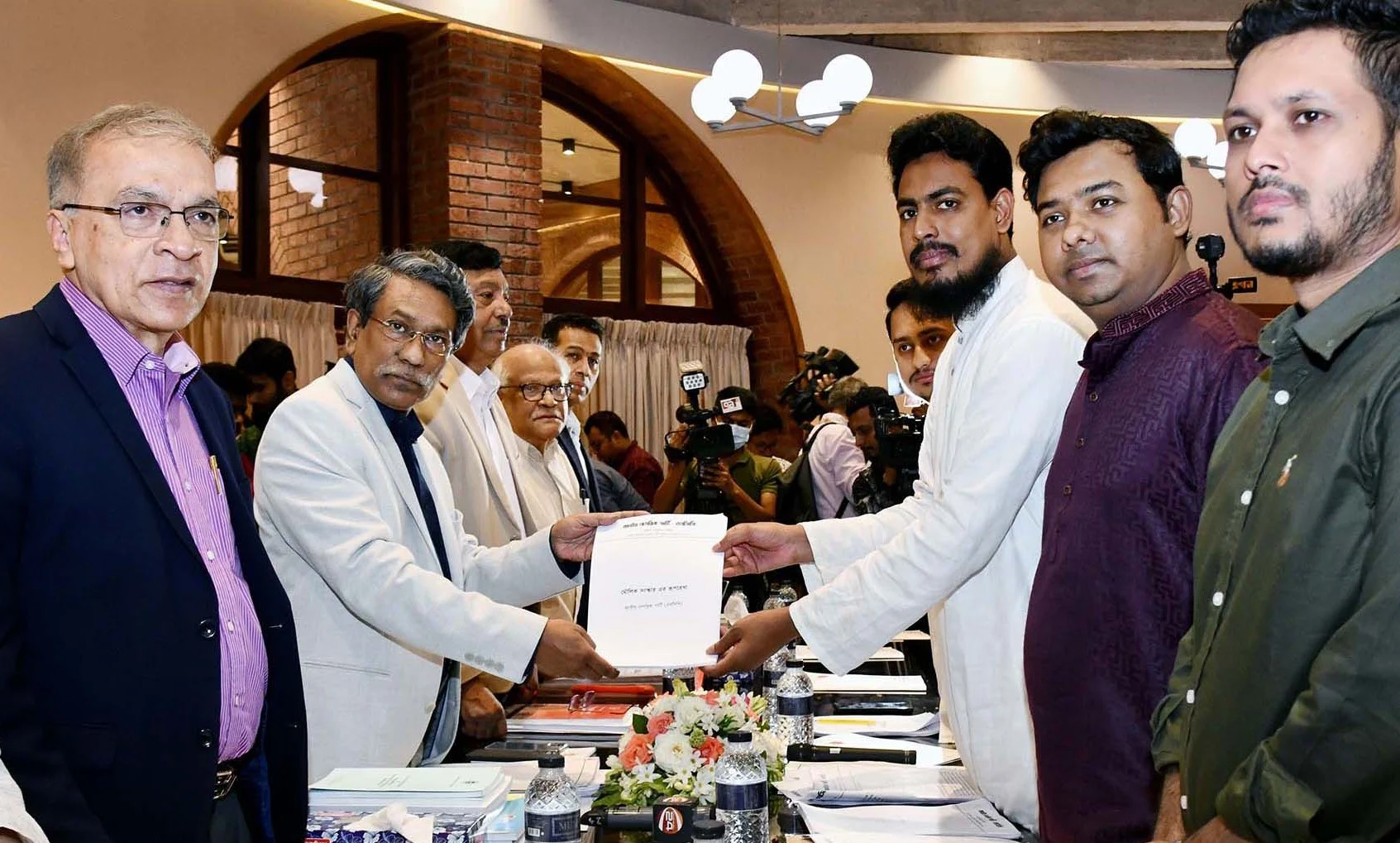News Flash
News Flash

DHAKA, May 06, 2025 (BSS) - The National Citizen Party (NCP) has agreed to the National Consensus Commission's proposals to establish electoral college system to elect president and allow lawmakers to vote against their party.
"The NCP has agreed to the NCC's recommendations to adopt electoral college system to elect the president and introduce a bicameral legislature," NCP's Reform Coordination Committee head Sarwar Tusher told media on the sidelines of the talks with the NCC at the LD Hall of the National Parliament today.
Besides, the NCP proposed expansion of local government's role in national decision-making processes.
Tusher said the party recommended that elected officials from city corporations and other local government bodies be incorporated into the electoral college to widen democratic participation.
The NCP also supported allowing lawmakers to vote against their party-except in cases involving budget bills or no-confidence motions, Tusher said.
In this regard, the NCP proposed amendment to the Article 70 of the constitution.
He stressed lawmaker's freedom to oppose their respective party.
The NCP also agreed to several proposals including appointment of Chief Justice based solely on seniority, expansion of the Supreme Judicial Council's jurisdiction, assigning the body to investigate corruption allegations and constitutional violations by the Election Commission after its tenure ends.
The party also supported introducing a referendum for specific constitutional amendments, including changes to the preamble and fundamental principles of the state, following a two-thirds majority vote in both houses of the parliament.
It also supported the NCC's proposal to declare Faridpur and Cumilla as separate administrative divisions.
However, the NCP opposed the proposal to introduce provincial governments, citing potential risks to national stability.
Instead, the party advocated for empowering local governments as a more practical and beneficial alternative.
The party further proposed that key parliamentary standing committees-such as those overseeing home affairs, public administration, and public accounts be chaired by opposition leaders to strengthen transparency and accountability.
Tushar also rejected recommendations to grant judicial powers to district magistrates, insisting that such powers remain within the judiciary. He opposed abolition of district councils and elimination of the role of district council chairpersons.
The second round of talks between the NCC and the NCP began around 10:30 am today.
NCC Vice Chairman Prof. Riaz presided over the meeting.
NCC member Justice Emdadul Haque, Badiul Alam Majumder, Dr Iftekharuzzaman, Safar Raj Hossain, Mohammad Ayub Miah and special assistant to the Chief Adviser Monir Haider attended, among others.
NCP delegation included party's Member Secretary Akhter Hossen, northern region Chief Organizer Sarjis Alam and Joint Conveners Sarwar Tushar and Javed Rasin.
At the beginning of the meeting, Akhter Hossen handed over a set of reform proposals to Prof. Riaz.
The NCP argued in favor of directly electing union council chairmen and members through public vote, and demanded removal of party symbols from local elections, claiming that they have contributed to electoral violence and were introduced by a previous authoritarian regime.
To ensure transparency, the NCP proposed all government officials and employees be legally required to declare their assets annually. It also endorsed having 100 seats in the lower house filled through direct elections, and reserving 25 percent of the 100 seats in the proposed upper house for women.
Notably, the first meeting between the NCC and the NCP took place on April 19, during which the groups discussed proposals from the Constitution, Judiciary, and Election Reform Commissions.